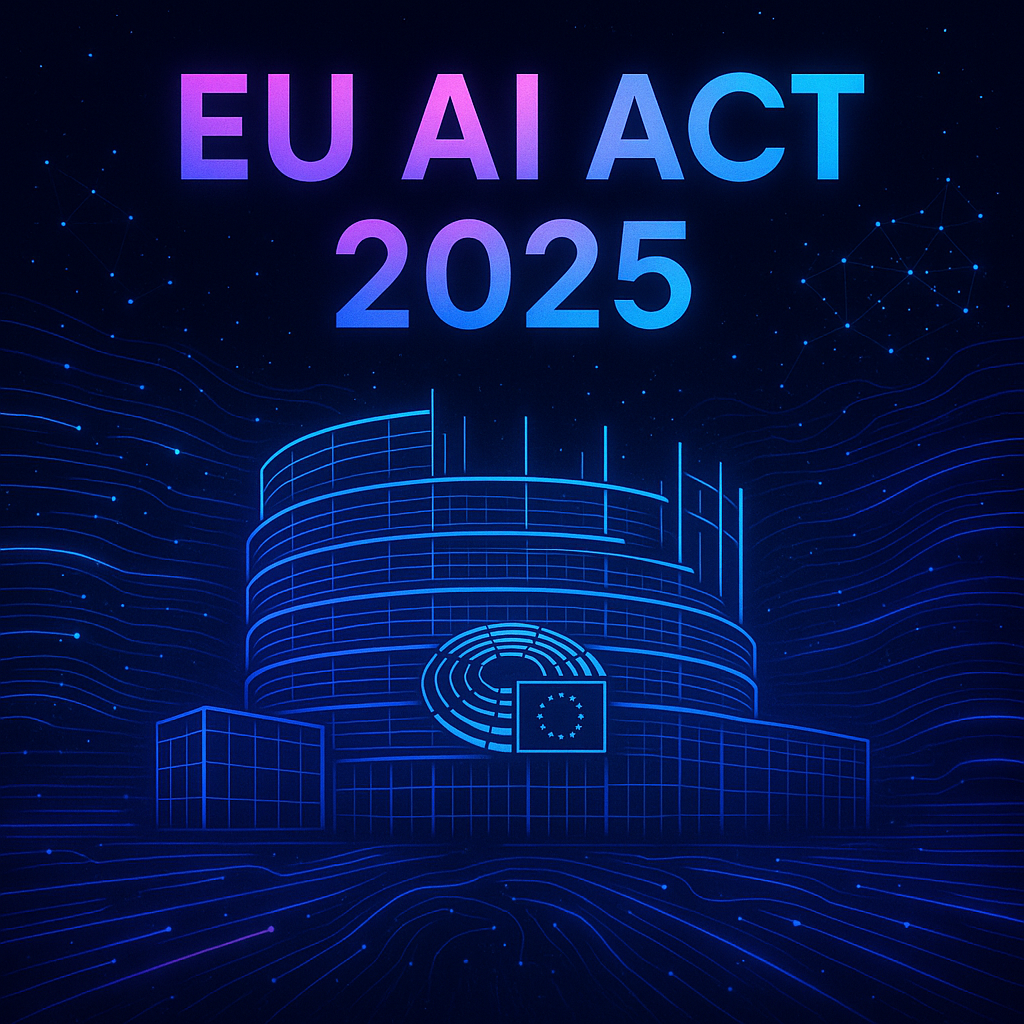EU AI Act Explained: 5 Things You Must Know (2025)
Super Simple Summary
The EU AI Act is the world’s first rulebook for AI. It uses a risk-based model (banned → high → limited → minimal) to keep innovation moving **and** people protected.
🚀 Introduction: AI Gets Its First Rulebook

Artificial Intelligence is everywhere, recommending what we watch, helping us at work, and even deciding who gets a job interview. It’s exciting, but it also raises big questions. Who makes sure AI plays fair? Who protects us when algorithms go rogue?
That’s where the EU AI Act steps in. This new law is the world’s first official rulebook for AI, setting clear boundaries so technology can grow responsibly. Think of it as a cosmic traffic code. Red lights for unsafe AI, green lights for creativity, and speed limits where things could get risky.
And trust me, as someone who once tried to play a board game with my kids without following the rules, it ended in chaos and chocolate milk on the carpet. Rules don’t just slow things down; they actually make the game fair, safe, and a lot more fun. The same goes for AI.
1) Why We Need Rules for AI
AI is powerful, but without guidance, it can cause harm. For example:
- A recruitment tool might unintentionally favor men over women.
- A deepfake video could spread fake news during an election.
- Predictive policing could unfairly target certain groups.
The EU AI Act is like giving AI a seatbelt and airbags. We still get to drive fast into the future, but with better safety.
Quick takeaway: Regulation isn’t a brake; it’s a steering wheel.
2) The Risk Pyramid: From Banned to Minimal
Not all AI is equal, so the Act takes a risk-based approach. Imagine a pyramid:
- Unacceptable Risk 🚫: Systems like social scoring (think “Black Mirror” credit scores) are banned.
- High Risk ⚠️: AI in healthcare, policing, hiring, or education faces strict requirements:
- Human oversight
- Quality, unbiased data
- Transparency on how it works
- Limited Risk 🟡: Chatbots and recommendation engines are allowed, but must be labeled so you know when you’re talking to AI.
- Minimal Risk 🟢: Everyday AI like spam filters or game NPCs remain largely free to use.

This ensures innovation isn’t crushed, but safety isn’t ignored.
3) What It Means for Citizens, Developers, and Businesses
So, how does this affect you?
- Citizens: You’ll know when AI is in use and gain protection against unfair treatment.
- Developers: If you’re building high-risk AI, you’ll need to meet the new standards.
- Businesses: Using AI in areas like finance or health? You’ll need to prove compliance or face penalties.

In practice: If you’re running a shop with a recommendation engine, you’ll likely just label AI interactions. But if you’re building an AI to decide who gets a mortgage, expect stricter checks.
4) It Matters Beyond Europe (Think: GDPR Effect)
This isn’t just a European issue. Remember how GDPR (the privacy law) influenced the whole world? The EU AI Act will likely do the same.
- Companies outside the EU that serve EU citizens will need to comply.
- Other regions may follow the EU’s lead.
- Big AI companies may adopt EU standards globally to keep things simple.
The EU might just become the galactic headquarters of AI regulation.
5) Real-Life Examples: The Act in Action
Here’s how the law plays out in everyday scenarios:
- Education: AI grading tools must prove they’re fair and transparent.
- Healthcare: AI diagnostics (like spotting cancer) need rigorous testing.
- Recruitment: Candidate-screening AI must avoid bias.
- Creative tools: A chatbot like ChatGPT just needs to disclose, “You’re talking to an AI.”
So don’t worry, your AI art generator won’t suddenly vanish. The Act just makes sure the bigger, riskier systems have human guardrails.
📚 Want to Learn More?
The Dutch Data Protection Authority has a clear guide on both the EU AI Act and how to get started with AI literacy.
✨ Final Thoughts
The EU AI Act is a historic milestone. It doesn’t stop AI from evolving, it simply points us in the right direction. Like a compass, it guides us toward a future where AI is innovative and trustworthy.
At AI Voyager, I’ll keep decoding these changes so you can explore AI with confidence and curiosity. After all, the future of intelligence is a journey and we’re voyaging there together. 🚀
Like posts like this? Subscribe to the newsletter and get practical AI tips, tools, and stories in your inbox.
Until then, stay curious and keep exploring.
– André Barnard, AI Explorer
Enjoyed the post? Share it!
Help others discover this content
